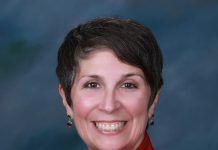Headquartered in Chicago, the Thomas More Society is celebrating the overturn of the 1973 Roe v. Wade ruling. Attorney Paul Jonna, special counsel for the Thomas More Society and partner at LiMandri & Jonna represented David Daleiden with the Thomas More Society as co-counsel, then the firm became its special counsel after that case.
Daleiden founded California-based Center for Medical Progress in 2013 to go undercover for 30 months to expose illegal activities of the abortion industry.
Jonna, along with his partner Chuck LiMandri have been involved in religious liberty work together since 2013, handling religious liberty cases throughout the country, but mostly in California.
Recently, Jonna filed a lawsuit on March 4 in California Superior Court representing The Chaldean Coalition against the county of San Diego, its Independent Redistricting Commission, and its Registrar of Voters to reunite the Chaldean Community split up by the approval of new county districts, splitting the Chaldean community in the city of El Cajon and Rancho San Diego, to get the court to order the IRC to redraw the lines separating this community.
Jonna is a member, and former board member of the St. Thomas More Society of San Diego, an association of lawyers, judges, paralegals, law students, and legal professionals dedicated and united by their Catholic Christian faith that serves the local community with a professional speaker series, monthly meetings, student scholarships, and legal assistance, according to its website.
Thomas More Society was directly involved with the Supreme Court case via three separate amicus/amici filings, each supporting Dobbs v. Jackson Women’s Health Organization in the state of Mississippi’s action to curb abortion. Jonna said they were very pleased with the Supreme Court’s decision.
“It was a monumental, very significant ruling that really closed the chapter of Roe v. Wade and Planned Parenthood v. Casey,” he said. “The Court said that Roe was not constitutional law at all, and as [former] Justice [Byron] White said in his dissent in Roe v. Wade, it represented the ‘exercise of raw judicial power.’ The Court said that Roe was egregiously wrong from the start, it was exceptionally weak, and basically the Court has said now it is time to follow the Constitution and return this issue of abortion to the peoples’ elected representatives. Abortion restrictions that states enact in the future will be subject to what is called a rational basis revue, so like any other health and safety law there will be a strong presumption that those restrictions are valid, and that is going to be the new framework going forward.”
Jonna said the Society filed three amicus briefs representing Dobbs.
“Our California office filed one on behalf of the Center for Medical Progress,” he said. “It focused on CMP founder David Daleiden, the undercover reporter who went inside Planned Parenthood and uncovered a black market of baby body parts being harvested and sold for profit. The focus of that brief was how that reporting discovered abuses in the fetal tissue procurement industry and how fetal material is valuable, precisely because it is human tissue. That value leads to the potential for corruption and abuse, and the government therefore has a significant interest in protecting fetal life.”
“In other words, the Court’s abortion cases have led to a devaluing of fetal life and led to a callous and cruel treatment of unborn children,” continued Jonna. “The Thomas More Society filed two other briefs and has been involved in pro-life litigation throughout the country for several decades.”
Andrew Bath, Thomas More Society executive vice president and general council stated that its “efforts appeared to have paid off.”
“First and most importantly, we clearly laid out the ways the court got the law wrong when deciding Roe v. Wade and Planned Parenthood v. Casey. There simply was no right to abortion hiding in the constitution until the Roe court found it in 1973,” he stated. “Next, we argued that the court got the science of fetal development wrong. There have been advances in medicine and in our understanding of fetal development that have made Roe even more out of touch with science now than it was when it was decided almost 50 years ago.”
Bath added that it pointed out new statutes known as “Safe Haven” laws have been passed by every state in the union, permitting mothers to drop off unwanted babies at safe places like hospitals, so now, “it is never true” that a mother will be forced to raise a child she does not want or thinks she cannot afford.
“Lastly, we urged the court to recognize and emphasize the humanity of the unborn child and find that the humanity of the unborn differentiates claims of abortion rights from that of any other right,” stated Bath. “In short, we dismantled every single one of the abortion industry’s main arguments for the infant slaughter that has been the law of the land in our country for nearly 50 years,” saying that all three key points were noted in the Court’s opinion.














